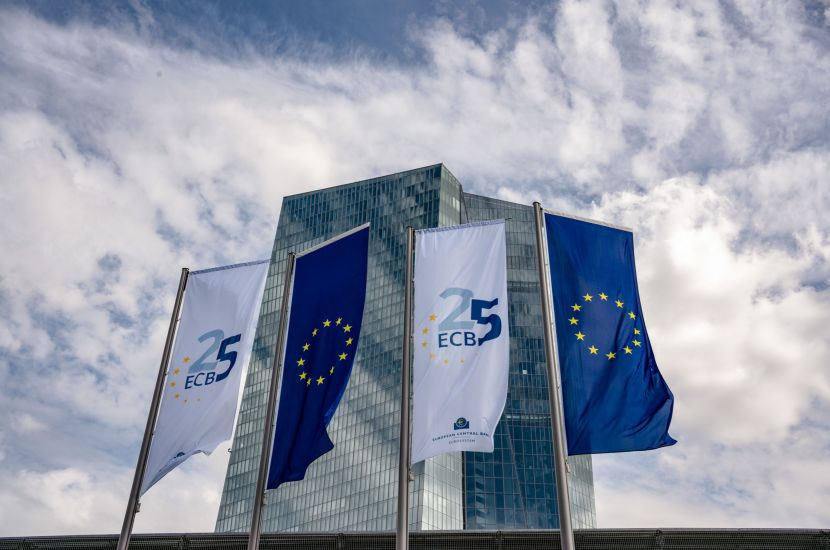Efforts to Curb Inflation in Europe
In recent news, concerns about rising inflation in Europe have prompted efforts to curb its impact on the economy. The European Central Bank (ECB) and various financial institutions are taking measures to address this issue and maintain stability.
Isabel Schnabel, a member of the ECB’s governing board, has warned against complacency in dealing with inflation. She emphasized the need for officials to be proactive and not overly concerned about raising interest rates. This statement reflects the ECB’s commitment to addressing inflationary pressures effectively.
The eurozone’s main inflation indicator has shown signs of slowing down, but it still remains above the ECB’s target of 2%. To regain control over inflation, monetary policy officials have confirmed their intention to implement measures to curb its rise. These measures may include adjusting interest rates and implementing other monetary policy tools.
Furthermore, several banks, including Goldman Sachs, UniCredit, and BNP Paribas, have revised their expected final interest rates. They have increased their projections from 3.5% to 4%, indicating a cautious approach to combat inflationary pressures.
The efforts to curb inflation in Europe are crucial for maintaining economic stability and preserving public trust in the ECB. High inflation erodes trust in central banks and can have detrimental effects on the overall economy. Therefore, it is essential for policymakers to remain vigilant and take appropriate actions to address this issue effectively.
As the situation unfolds, market traders are closely monitoring the developments and expecting the European Central Bank to reach its peak interest rate. This anticipation reflects the importance of the ECB’s actions in managing inflation and ensuring a stable economic environment.
In conclusion, efforts to curb inflation in Europe are underway, with the ECB and financial institutions taking proactive measures. The focus is on maintaining stability, addressing inflationary pressures, and preserving public trust in the central bank. By implementing appropriate monetary policy tools, adjusting interest rates, and closely monitoring the situation, policymakers aim to control inflation and foster a favorable economic climate.
ecb rate decision
In recent news, there has been a significant focus on addressing rising inflation in Europe. Various measures have been taken by the European Central Bank (ECB) and other financial institutions to curb the impact of inflation on the economy and maintain stability.
Isabel Schnabel, a member of the ECB’s governing board, has emphasized the need for proactive measures to tackle inflation. She has cautioned against complacency and highlighted the importance of not being overly concerned about raising interest rates. This statement reflects the commitment of the ECB to effectively address inflationary pressures.
Although the eurozone’s main inflation indicator has shown signs of slowing down, it is still above the ECB’s target of 2%. To regain control over inflation, monetary policy officials have affirmed their intention to implement measures to curb its rise. These measures may include adjusting interest rates and utilizing other monetary policy tools.
Additionally, several banks such as Goldman Sachs, UniCredit, and BNP Paribas have revised their expected final interest rates in response to the inflationary pressures. They have increased their projections from 3.5% to 4%, indicating a cautious approach in combating inflation.
Efforts to curb inflation in Europe are crucial for maintaining economic stability and preserving public trust in the ECB. High inflation erodes trust in central banks and can have detrimental effects on the overall economy. Therefore, policymakers must remain vigilant and take appropriate actions to address this issue effectively.
Market traders are closely monitoring the developments surrounding inflation in Europe and have high expectations for the European Central Bank to reach its peak interest rate. This anticipation underscores the significance of the ECB’s actions in managing inflation and ensuring a stable economic environment.
In conclusion, proactive measures are being taken to curb inflation in Europe, with the ECB and financial institutions playing a vital role. The focus is on maintaining stability, addressing inflationary pressures, and preserving public trust in the central bank. Through the implementation of appropriate monetary policy tools, adjustment of interest rates, and diligent monitoring, policymakers aim to exert control over inflation and foster a favorable economic climate.



The article provides key insights into the ongoing efforts to tackle inflation in Europe, offering valuable updates, cautionary warnings, and revised interest rate predictions. This comprehensive overview helps shed light on the complexity of the situation and the measures taken by policymakers to maintain stability in the region’s economy.
The article sheds light on the ongoing measures being implemented to combat inflation in Europe. With regular updates, cautious warnings, and revised interest rate predictions, policymakers seem determined to control the rising prices. It remains crucial to closely monitor these efforts and their impact on the region’s economic stability.